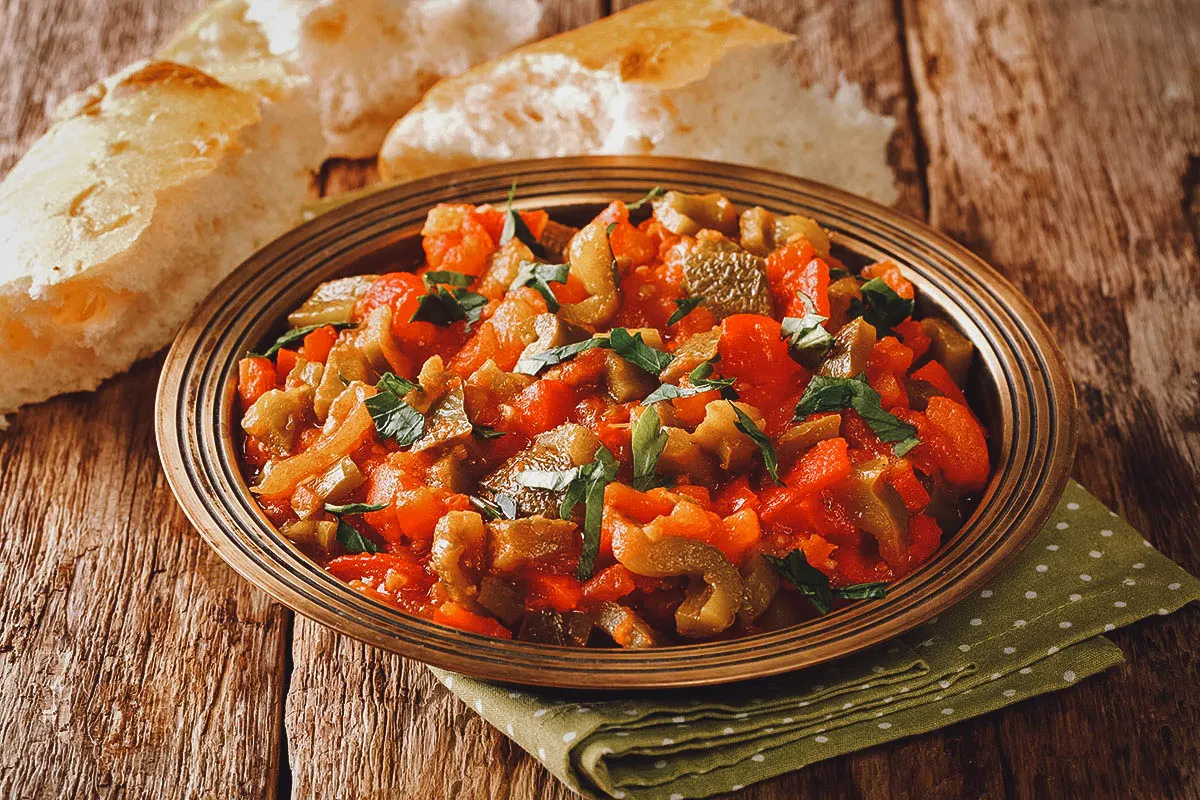Leading Mediterranean Food in Las Vegas: A Foodie Delight
Leading Mediterranean Food in Las Vegas: A Foodie Delight
Blog Article
Discover the Flavors of Mediterranean Food: A Trip Via Health and Taste
The Mediterranean diet plan, celebrated not only for its abundant tapestry of tastes however also for its numerous health advantages, invites a more detailed assessment of its origins and essential active ingredients. The solution exists in its unique approach to food and wellness.
Beginnings of Mediterranean Food
Typically concerned as one of one of the most diverse and vibrant culinary practices, Mediterranean cuisine has its beginnings deeply rooted in the historic and geographical context of the region. Incorporating the culinary practices of nations bordering the Mediterranean Sea, such as Italy, Greece, Spain, and Turkey, this food has advanced over centuries, influenced by a confluence of societies, trade, and environment.
The ancient human beings of the Mediterranean, including the Greeks, Romans, and Phoenicians, played a crucial function fit these culinary techniques. The exchange of ingredients and strategies among these societies fostered an abundant tapestry of flavors and cooking techniques. Geography likewise significantly affected the diet; as an example, seaside areas leaned greatly on fish and shellfish, while inland regions stressed the usage of grains, legumes, and animals.
Moreover, the region's environment, characterized by warm, completely dry summers and moderate, damp winters, assisted in the cultivation of a vast selection of natural herbs, fruits, and veggies. This farming bounty added to a cuisine that celebrates quality and seasonality. As an outcome, Mediterranean cuisine stays not only a representation of its history yet also a testament to the sustaining connection between food, culture, and the environment.
Secret Components and Their Benefits
The rich history of Mediterranean cuisine is reflected in its essential active ingredients, which are essential to producing the region's unique flavors. Olive oil, a keystone of this cooking tradition, supplies countless health advantages, consisting of heart health and wellness promo and anti-inflammatory residential properties. Rich in monounsaturated fats, it works as a much healthier alternative to saturated fats.
Fresh veggies such as tomatoes, cucumbers, and bell peppers are commemorated for their lively flavors and nutritional worth. They are loaded with minerals, vitamins, and anti-oxidants, adding to overall health and health. Legumes, consisting of chickpeas and lentils, give a robust resource of protein and fiber, making them crucial for a balanced diet.

Popular Mediterranean Cuisines
Delightful diversity identifies prominent Mediterranean dishes, each using a distinct mix of flavors and social influences (mediterranean food in las vegas). The area's cooking landscape is rich with staples such as hummus, a luscious blend of chickpeas, tahini, and garlic, usually served as a dip with pita bread. An additional classic is the Greek moussaka, a layered covered dish of eggplant, ground meat, and béchamel sauce, showcasing the harmony of structures and preferences

Seafood additionally plays a popular duty, as seen in dishes like paella from Spain, which incorporates rice, saffron, and a variety of fish and shellfish, mirroring coastal impacts. For those with a sweet tooth, baklava, a pastry constructed from layers of filo dough, nuts, and honey, offers an indulgent and abundant experience.
These dishes not only exhibit the culinary creativity of the Mediterranean yet also work as a testimony to the area's rich history and social exchanges.
Wellness Advantages of Mediterranean Diet Plan
Countless studies have highlighted the health advantages connected with the Mediterranean diet plan, which is identified by a high consumption of fruits, veggies, entire grains, and healthy fats, particularly olive oil. This dietary pattern has actually been linked to a lowered risk of chronic diseases, consisting of heart disease, diabetes, and specific sorts of cancer cells. The focus on plant-based foods supplies essential nutrients and antioxidants, which contribute to overall health and wellness and wellness.
Research study has shown that adherence to the Mediterranean diet plan can enhance cardio health and wellness by reducing blood stress and cholesterol degrees. Furthermore, the diet plan's anti-inflammatory buildings might aid in taking care of weight and lowering the threat of obesity-related problems. The addition of fatty fish, rich in omega-3 fatty acids, supports mind health and wellness and cognitive function.
Furthermore, the Mediterranean diet advertises a well balanced technique to eating, encouraging conscious intake and social communications during meals, which can boost psychological health and wellness and overall lifestyle. Its varied flavors and nutrient-dense ingredients make it a pleasurable and sustainable nutritional option, fostering lasting adherence and countless health and wellness advantages (mediterranean important site food in las vegas). Welcoming this diet plan may bring about a much more vibrant, much healthier way of life

Tips for Incorporating Mediterranean Flavors
Including Mediterranean flavors into your dishes can change your dining experience while reaping the diet's wellness advantages. To begin, make use of a selection of fresh herbs and spices, such as rosemary, oregano, and basil, to raise the taste of your recipes. These aromatic additions not just improve taste but also boost dietary value.
Following, focus on integrating standard ingredients like olive oil, tomatoes, garlic, and lemon. Use added virgin olive oil as your main food preparation fat, drizzling it over salads or using it for sautéing veggies. Furthermore, tomatoes can be appreciated in different kinds, from fresh salads to roasted dishes, offering essential vitamins and anti-oxidants.
Entire grains, such as quinoa, bulgur, and farro, are additionally vital elements of the Mediterranean diet. Substitute fine-tuned grains with these nutrient-dense alternatives to provide fiber and a gratifying appearance. Additionally, do not forget to consist of a range of beans, such as chickpeas and lentils, which function as excellent resources of plant-based healthy protein.
Conclusion
The exploration of Mediterranean cuisine reveals a rich tapestry of flavors and nutritional benefits that contribute to overall health. Incorporating Mediterranean dishes right into day-to-day advice diet regimens supplies countless wellness benefits, making it an engaging option for those seeking to enhance their eating habits.
The Mediterranean diet, commemorated not description just for its abundant tapestry of flavors but also for its numerous wellness advantages, welcomes a better evaluation of its origins and vital active ingredients.Many research studies have highlighted the health advantages connected with the Mediterranean diet, which is defined by a high intake of fruits, veggies, entire grains, and healthy fats, specifically olive oil.Integrating Mediterranean flavors into your meals can change your dining experience while gaining the diet's wellness benefits.The expedition of Mediterranean food reveals an abundant tapestry of flavors and nutritional advantages that contribute to total health and wellness. Incorporating Mediterranean recipes into day-to-day diet plans provides countless wellness benefits, making it a compelling selection for those looking for to boost their consuming practices.
Report this page